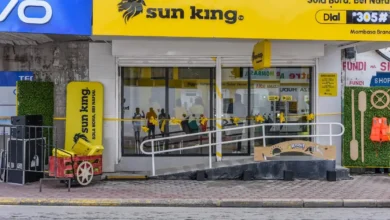
Iran launched a series of drone and missile strikes against Israel in retaliation for a suspected Israeli airstrike that targeted the Iranian consulate in Damascus, Syria.
Concurrently, Iran’s Revolutionary Guards made headlines by seizing an Israeli-linked container ship near the strategic Strait of Hormuz.
Despite these aggressive actions, Israel has managed to limit the impact of the attacks, with the majority of the incoming missiles and drones being successfully intercepted.
The crucial offshore gas fields of Leviathan, Karish, and Tamar have continued to operate smoothly, ensuring a consistent gas supply for the nation.
Furthermore, Israel’s primary electric utility, the Israel Electric Corporation Limited, remained unaffected by the hostilities.
The financial markets have also displayed a degree of resilience, as evidenced by the stable price of Brent crude hovering around $90 per barrel.
Also Read: Oil Resumes Gain Amid Iran Risk
The unprecedented direct assault by Iran on Israel marks a significant escalation in geopolitical tensions.
Will Israel Hit Back at Iran?
Analysts at Moody’s anticipate a retaliatory response from Israel in the aftermath of these strikes, although the nature and timing of such a reaction remain uncertain.
The United States is expected to continue providing military and financial support to Israel, primarily focusing on bolstering the nation’s defense capabilities.
While the possibility of a retaliatory exchange between Israel and Iran looms, both parties are likely to avoid inflicting substantial damage on life and critical infrastructure.
Moody’s negative outlook on Israel’s A2 sovereign rating reflects the current risks associated with these escalating events.
Any further escalation that undermines Israel’s institutional capacity, public finances, or economy could exert downward pressure on the country’s sovereign ratings.
The implications of a full-blown conflict between Israel and Iran extend beyond their borders, potentially drawing in the United States and other nations.
Closure of Vital Transport Routes
Critical energy infrastructure, such as gas field projects, faces a heightened risk of physical damage.
The closure of vital transport routes like the Strait of Hormuz or sustained airspace restrictions in the region could disrupt global energy supplies and financial markets, leading to increased volatility and tighter financial conditions across the Middle East.
In a worst-case scenario, the global economy could face challenges characterized by heightened security concerns, energy disruptions, and weakened macro-financial conditions.
The extent of these challenges would largely depend on the severity and duration of any oil price spikes resulting from the conflict.
While a sustained increase in oil prices could impact the global economy, pushing it towards recession would require a significant and prolonged escalation in tensions.





